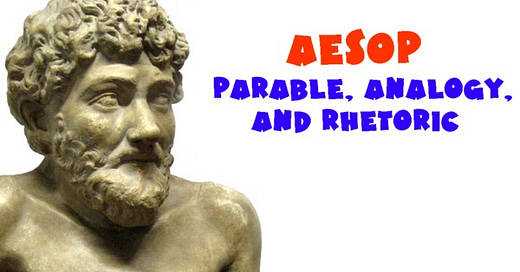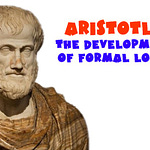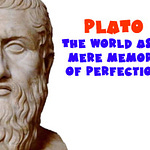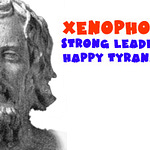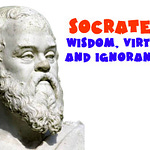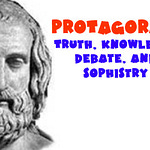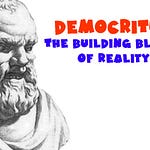Paid subscribers will have access to this and all other videos and bonus content. Please consider upgrading to a paid subscription to enjoy and support this project.
You can also obtain the benefits of a paid subscription by sharing Three Minute Philosophy with others. For each new friend you bring in, you earn benefits. So spread the word!
Aesop was an ancient Greek storyteller who probably lived around 600 BC who, along with Homer and Hesiod, is considered one of the originators of the early Greek storytelling tradition.
Like Homer, scholars aren’t entirely certain about whether Aesop actually existed as an individual, or whether he was a mythological figure credited with having written a collection of stories that were actually written by other people.
Aesop doesn’t usually get any considerable mention in the history of philosophy because he’s not usually regarded to have been a philosopher, and what we call philosophy didn’t really kick off until around a century after he died. What Aesop gave to the world didn’t really resemble philosophy so much as advice.
Nevertheless, what Aesop did was certainly something like philosophy. He wasn’t really trying to create new knowledge about the world, but he was trying to better describe it. And the way he described it was through the use of analogy, which means comparing one thing with another thing in order to better understand it.
Specifically, Aesop told parables, which are analogies in story form that teach some kind of lesson. More specifically, Aesop’s parables were fables, which pretty much just means they were full of talking animals like a Disney movie.
When it comes to Aesop himself, the only details we’re given of his life come from manuscripts that are probably largely fictional. Most commonly it’s said that he was a slave, and that his master was a philosopher named Xanthus, who was constantly frustrated by the fact that Aesop kept outsmarting him in public. Of course, if this was actually true, it’s more likely Xanthus would have simply had Aesop killed the second or third time it happened.
But the story of Aesop is kind of a parable in itself. What it teaches is that sometimes if we’re not careful what we call philosophy can actually just be a bunch of meaningless gibberish that sounds smart. Incidentally, this is the position still held by some people today. In that sense, it might be said that Aesop was an anti-philosophy philosopher. Which, ironically, is still a philosophy.
For example, one story goes that Xanthus and Aesop were walking through the garden when a farmer stopped the great philosopher to ask why it was that the weeds always grow better than his crops. In response, Xanthus offers a bunch of philosophical gobbledygook that sounds insightful but doesn’t really answer the question.
Aesop laughs at this and tells the farmer that the real reason the weeds grow better is because, if you imagine the Earth like a twice married mother, the weeds are her natural children, whereas the farmer’s crops are her step-children.
Naturally, the mother is more inclined to take better care of her own kids than someone else’s. The farmer thanked Aesop for giving him a straight answer that actually made sense without a post-graduate degree.
It seems likely that if this is a true story, Aesop probably went to bed that night without dinner while nursing two dislocated arms.
In later accounts, Aesop is said to have been invited to parties attended by other philosophers, but probably not very often, because he kept making fun of them and telling them their ideas were dumb.
In the end, everyone pretty much just got sick of him and did what they usually did when society wanted to get rid of someone in those days – they framed him for a petty crime and threw him off a cliff.
Despite the fact that pretty much Aesop’s entire thing was mocking philosophy, his story, whether or not there was any truth to it, was a strong influence on the early Greek philosophers, being referenced by Zeno, Socrates, Plato and Aristotle, among others.
In fact, the influence that Aesop had on philosophy is probably much more than Aesop ever intended, because as far as we know, the only thing he was actually trying to do was annoy some smart people and get out of mischief by making confusing analogies about animals. But what Aesop probably didn’t know was that he was actually setting up the basis for what’s known as rhetoric – the art of persuasive speech.
For example, it’s said that Aesop once defended a corrupt politician by making an analogy about a fox who was getting bitten by mosquitos. He said it was better to let the mosquitos stay than to try to chase them away, because they would just be replaced by hungrier mosquitos. Likewise, it’s better to let the politician keep his job than to replace him, because the new guy will probably just start stealing money all over again.
You can disagree with this argument but you have to admit that it makes you think, which is exactly the point of it. Given Aesop’s influence on Aristotle, it’s likely that he’s one of the greatest philosophers never to be mentioned in a philosophy class. And to think, you probably only knew him from those stories you read in picture books in primary school.
Sources:
Adamson, Peter., Classical Philosophy: A history of philosophy without any gaps. Oxford University Press, 2014
van Dijk, Geert., “Aesop” in Encyclopedia of Ancient Greece. 2006
Walker, Donald Dale., Paul’s Offer of Leniency, Mohr Siebeck, 2002
What you get for subscribing:
Three Minute Philosophy is a fun and educational series of videos and essays about the history of philosophy.
Essays are free. Paid subscribers will gain access to full videos, printable PDFs, and possibly more in time.
Listen to this episode with a 7-day free trial
Subscribe to Three Minute Philosophy to listen to this post and get 7 days of free access to the full post archives.


